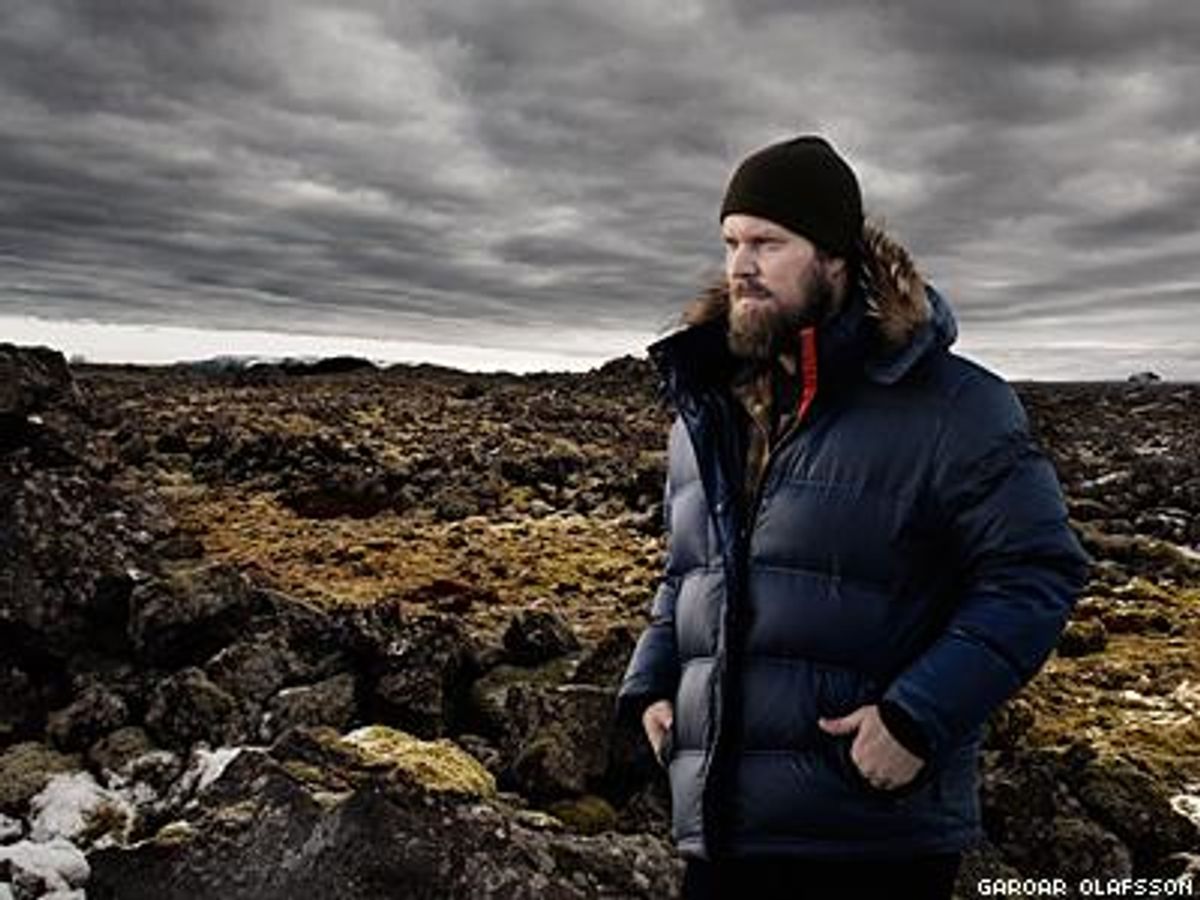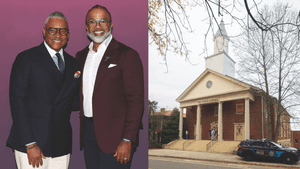
There is a road that cuts the state of Colorado in half. Beginning in New Mexico, a person can drive north on this highway through the cities of Trinidad and Colorado Springs, past Denver and Columbine, through Boulder and the Rocky Mountain National Park, and end his travels in Laramie, Wyoming.
 Along this road, in a town called Parker, is where musician John Grant spent most of his young life. Looking back, he vividly recalls his nighttime drives down this stretch of pavement and the smell of the Russian olive trees that lined the road.
Along this road, in a town called Parker, is where musician John Grant spent most of his young life. Looking back, he vividly recalls his nighttime drives down this stretch of pavement and the smell of the Russian olive trees that lined the road.
“They give off the most incredible fragrance,” said Grant, 44, who named his latest album, Pale Green Ghosts, after the yellow-flowered trees that glow silver in the moonlight. “It’s sort of an oasis in the midst of a chaotic time, my adolescence. It’s a memory that’s really beautiful for me — a moment. It’s a capturing of a small moment.”
The trees are not the only ghosts in the album, which explores many small moments from the life of John Grant. From alcoholism, to drugs, to HIV, Grant has battled his more than his fair share of demons. Remarkably, Pale Green Ghosts, a haunting record born from Grant’s collaboration with Biggi Veira of the Icelandic electronica group GusGus, shares not only the pain of this journey, but also the beauty that blooms unexpectedly like flowers along a highway.
In the song “Glacier,” which is rooted in the artist’s struggles of coming out as a gay man, Grant sings about the ache of being a social outcast: “They say you are sick / That you should hang your head in shame / They are pointing fingers / And want you to take the blame.”
Grant uses the image of the glacier, a large mass of ice that carves mountains and rivers in its crawl across a continent, to convey the emotional transformation that occurs during suffering. And transformation doesn’t always mean destruction. As the chorus states, the “glacier moving through you” becomes a means of “nourishing the ground” and “creating spectacular landscapes.” It’s a hopeful song that Grant wished he had heard when he was young.
“I wished I had heard somebody talking about the fact, you know, being gay didn’t make me less of a human than other people,” Grant said. “It takes a very, very long time to undo a lot of the damage [from this abuse].”

Grant’s pain led him to pursue alcohol, drugs, and sex as a means of escape. He attributes his contraction of HIV to this destructive mindset, which caused him to abuse “a lot of things that other people can enjoy quite naturally,” the musician said. “And these things turned into life and death situations for me, things that could have killed me and destroyed me.”
The line between life and death often blurs in Pale Green Ghosts. In “Ernest Borgnine,” a song that honors one of Grant’s favorite actors, the speaker recalls the damning words of his father after a string of drug references: “Dad keep looking at me says I got the disease / Now what did you expect, you spent your life on your knees.”
While the verses are tinged with shame, the chorus repeats the phrase “I wonder what Ernest Borgnine would do,” a steady mantra amid the chaos. Grant says the song is a means of coping with his HIV diagnosis, which he learned of after receiving a text message from a former lover in January 2011.
“'Ernest Borgnine’ is just an absurd take on Woody Allen’s Purple Rose of Cairo, Grant says, referring to the 1985 film in which a woman goes to the movies to escape her life’s hardships. “And so, that’s what this is for me. It’s me escaping the diagnosis of HIV... and wondering what one of my cinematic heroes would do.”
Ultimately, it was the words of a nurse that swayed Grant from his destructive path. Grant was recommended to Alcoholics Anonymous by his caregiver, a moment he calls “a turning point, because that led to me getting sober and slowly starting to face myself.”
“I was just tired,” Grant says. “I was tired, and I wanted to do something with my life, and I knew that I wasn’t going to be able to do anything with my life unless I got sober.”
And sobriety helped. Pale Green Ghosts follows Grant’s critically acclaimed debut solo album, Queen of Denmark, which was named Best Album of 2010 by Mojo magazine. (Grant launched his solo career in 2010 after the break-up of his band The Czars, which performed throughout the 1990s and early 2000s.) The title track even inspired a cover by Sinead O’Connor, who is now a friend of Grant’s and a backup vocalist on Pale Green Ghosts.
Grant, whose bearded and brooding charm is a far cry from the mainstream perception of a person living with HIV, came out about his status while performing at London's Meltdown Festival. The brave act is testament to his progress in overcoming his addictions and the anxieties tied to his diagnosis.
“I talked about it because I was about to sing a song that I’d written about it, and I didn’t know if I should say anything,” says Grant, who, perhaps, had figured out exactly what Ernest Borgnine would have done. “And at the last moment, I was like, you know what, it’s no big deal. There’s millions of people dealing with this... I don’t feel like I should be ashamed of it.”
John Grant's album Pale Green Ghosts is now available. Watch the music video of his song "GMF" below.


 Along this road, in a town called Parker, is where musician John Grant spent most of his young life. Looking back, he vividly recalls his nighttime drives down this stretch of pavement and the smell of the Russian olive trees that lined the road.
Along this road, in a town called Parker, is where musician John Grant spent most of his young life. Looking back, he vividly recalls his nighttime drives down this stretch of pavement and the smell of the Russian olive trees that lined the road.






































































